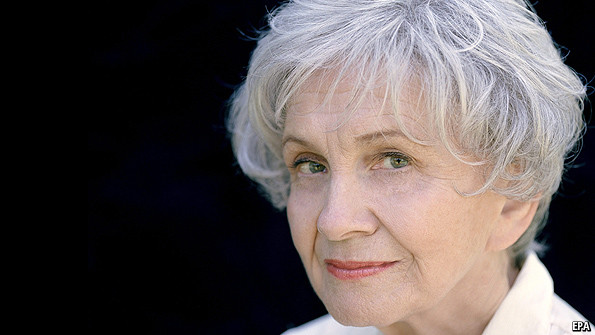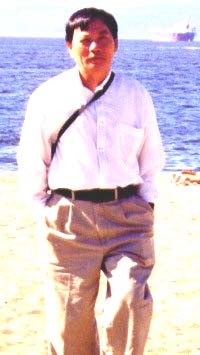
“YEARS ago, before the trains stopped running on so many of the branch lines, a woman with a high, freckled forehead and a frizz of reddish hair came into the railway station and enquired about shipping furniture.” So begins the title story in Alice Munro’s collection "Hateship, Friendship, Courtship, Loveship, Marriage", published in 2001. Immediately present are some of the hallmarks of Ms Munro’s body of work: readers are dropped into a place whose familiarity is confidingly assumed—you know about those branch lines, too—and a subtle particularity takes hold. The mind behind that high, freckled forehead is apparent; the subject of shipping furniture is compelling right away.
The worlds that Alice Munro creates in her stories are bound largely by the landscape of Western Ontario during the author’s lifetime, and by the people who inhabit that landscape. This might seem like a narrow canvas, but Ms Munro's insight into her characters’ minds and hearts, her illumination of human emotion and human deception, places her among the truly great. Many had long suspected she would earn a Nobel prize before the award was announced earlier today. Her talent is no secret. And yet there is a nearly miraculous quality of revelation in her work.
Born in 1931 in Wingham, Ontario, she was raised in a family of farmers. Their stories were woven into "The View from Castle Rock" (2006), a largely autobiographical collection. Ms Munro began publishing her work as early as 1950, when she was a student at the University of Western Ontario. Her first complete collection, "Dance of the Happy Shades", was published in 1968 and won the Governor General’s Award for Fiction. Since then she has been widely honoured—winning the Governor General’s Award twice more; in her native Canada she has also won the prestigious Giller prize twice. She has won the National Book Critics’ Circle Award, the PEN/Malamud Award; in France she was made a Chevalier dans l’Ordre des Arts et des Lettres.
The best fiction acts as a kind of mirror, showing us to ourselves through the lives of others. This is one of Ms Munro’s greatest gifts. “Millions of readers pick up an Alice Munro story and react with a kind of galvanised self-recognition,” marvelled Jane Smiley, a novelist and Man Booker judge chairman, when she presented the Man Booker international prize to Ms Munro in 2009. This was the first time the award went to a short-story writer. Books such as "The Progress of Love" (1986), "The Love of a Good Woman" (1988) and "Runaway" (2004) cemented Ms Munro's reputation as a writer capable of reinventing a seemingly tired form. Her stories play with structure and theme, even as they evoke a deeply felt realism.
“I hoped to write novels,” Ms Munro admitted in the preface to her "Selected Stories". But her life didn’t seem to allow for them. “When you are responsible for running a house and taking care of small children, particularly in the days before disposable diapers or ubiquitous automatic washing machines, it’s hard to arrange for large chunks of time.” The moral dramas faced by women—by every woman—have always been at the centre of her work. This makes the award of the Nobel all the more welcome. Out of 106 Nobel prizes for literature, this is only the 13th to go to a woman.
Earlier this year—not long after her 14th collection of stories, "Dear Life", was published—she announced that she was putting down her pen. The autobiographical stories that closed that volume would be her last. She said at the time that she had been inspired by the example of Philip Roth, who announced his self-imposed retirement not long before. “I put great faith in Philip Roth,” she said. “He seems so happy now.” He would be happier still, one imagines, were he to win the Nobel prize; but this year the laurels belong, quite rightly, to Alice Munro.
